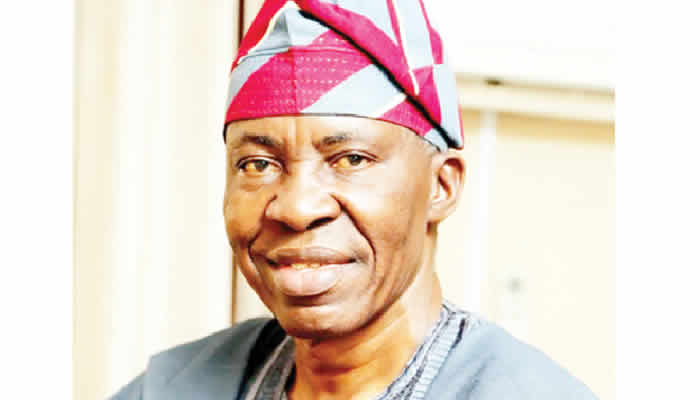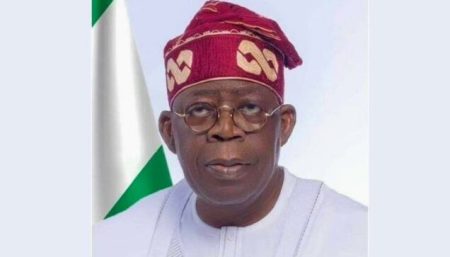Adegbenga Kaka, a seasoned Nigerian politician, offers his perspectives on a range of political issues in this interview. He addresses the recent wave of defections to the ruling All Progressives Congress (APC), arguing that it’s a natural political process involving willing participants. Kaka dismisses concerns about inducement, suggesting that influence and diplomacy are inherent aspects of politics and can originate from various levels within a party structure. He questions the worry over a potential one-party state, citing China’s rapid development under such a system, and suggests that Nigeria should adopt a system that best suits its needs, whether it’s a one-party, parliamentary, or even monarchical system, as long as it aligns with the people’s will.
Kaka downplays the threat of opposition coalitions challenging President Tinubu’s re-election bid in 2027. He points to the historical failure of alliances in Nigeria and emphasizes the APC’s success through fusion rather than alliance. He believes that a coalition formed so close to the election is unlikely to succeed due to inherent discord among its members. Assessing President Tinubu’s first two years in office, Kaka likens his approach to a doctor diagnosing and treating a chronic illness, requiring difficult but necessary decisions. He defends the president’s policies, such as subsidy removal, currency alignment, and electricity sector reforms, as painful but essential steps towards long-term economic recovery. He highlights Tinubu’s focus on food security, revitalizing river basin authorities, and addressing farmer-herder clashes as positive developments.
Kaka dismisses the concept of a shadow government proposed by Professor Pat Utomi, arguing that it lacks the necessary insight and information to offer meaningful solutions. He challenges them to contest elections and implement their ideas if they claim to possess the answers. Regarding Governor Dapo Abiodun’s performance in Ogun State, Kaka acknowledges the governor’s efforts in infrastructure development but suggests improvements in areas like potable water supply, agricultural support, and rural road development. He advocates for harnessing the potential of the Ogun-Osun River Basin and providing subsidized agricultural mechanization to empower farmers.
Kaka addresses the issue of state creation, specifically the differing positions of the Ijebus and Remos. He acknowledges the right of both groups to pursue their ambitions but emphasizes the need for understanding, patience, and ultimately, acceptance of the government’s decision. He suggests that historical justifications and current needs should be considered in determining the location of the state capital. On the agitation for Ogun West to produce the next governor in 2027, Kaka argues against ceding the governorship based on zonal representation, emphasizing that the best candidate should be chosen regardless of their origin. He acknowledges the right of Ogun West to aspire to the governorship but maintains that electoral success depends on strategy and not solely on sympathy or zonal rotation.
Kaka advises President Tinubu to prioritize delivering tangible benefits to the common man in his remaining two years. He emphasizes the importance of completing ongoing projects, such as the Lagos-Calabar Road, and reviewing the agreement with electricity companies to ensure regular power supply. He dismisses predictions of an implosion within the ruling party due to the influx of new members, attributing it to wishful thinking by the opposition. Finally, addressing the criticisms of the legislature as a rubber stamp, Kaka defends their actions, arguing that as long as the executive’s actions align with their legislative function, there’s no cause for concern. He urges the legislature to focus on repealing outdated laws, constitutional review, and aligning Nigeria’s legal framework with international standards. He also highlights the role of the judiciary in interpreting the law and resolving disputes between the branches of government, encouraging citizens to utilize legal channels to challenge perceived excesses rather than resorting to public outcry.
Kaka’s overall stance reflects a pragmatic approach to politics, emphasizing the importance of adapting to changing circumstances, prioritizing practical solutions, and focusing on the needs of the people. He defends the current administration’s actions while acknowledging the need for continuous improvement and adaptation. He underscores the importance of legal processes and constitutional review in ensuring a functional and responsive government. His perspective provides valuable insight into the dynamics of Nigerian politics and the challenges of governing a complex and diverse nation. He advocates for a system that prioritizes the well-being of the citizenry, regardless of the specific political structure adopted. He calls for patience and understanding as the country navigates its political and economic landscape. His insights offer a nuanced understanding of the complexities of Nigerian politics and governance.
Throughout the interview, Kaka emphasizes the dynamic nature of politics and the need for adaptability. He underscores the legitimacy of political maneuvering and the importance of focusing on delivering tangible benefits to the people. His perspectives offer a nuanced view of Nigerian politics, highlighting the interplay of various factors and the ongoing evolution of the country’s governance. He advocates for a pragmatic approach to governance, prioritizing solutions over ideological rigidity. His insights provide valuable context for understanding the challenges and opportunities facing Nigeria as it continues to develop its political and economic landscape. He calls for unity, understanding, and a focus on common goals to achieve progress and prosperity for all Nigerians.
Kaka’s responses reflect a blend of pragmatism and a deep understanding of the Nigerian political landscape. He emphasizes the fluidity of political alliances and the importance of focusing on delivering results to the people. His perspective provides valuable insights into the complexities of Nigerian politics and the challenges of governing a diverse nation with varied interests and aspirations. He advocates for a system that prioritizes the well-being of the citizenry, regardless of the specific political structure adopted. He calls for patience, understanding, and a commitment to working together to achieve collective goals.
Kaka’s emphasis on the need for adaptability and a focus on the needs of the people underscores his pragmatic approach to governance. He avoids rigid ideological stances and instead prioritizes finding practical solutions to the challenges facing the nation. His insights offer a valuable contribution to the ongoing discourse surrounding Nigerian politics and governance, highlighting the need for continuous evolution and adaptation in the pursuit of a better future for all citizens. He calls for a renewed focus on unity, understanding, and a shared commitment to building a more prosperous and equitable society.
Finally, Kaka’s words reflect a seasoned politician’s perspective, balancing the realities of political maneuvering with the imperative of serving the people. He offers a nuanced understanding of the dynamics at play within the Nigerian political landscape, highlighting the need for continuous adaptation, pragmatic solutions, and a focus on delivering tangible benefits to the citizenry. His insights provide valuable context for understanding the challenges and opportunities facing Nigeria as it strives to build a more stable, prosperous, and inclusive future for all its people. He calls for a collective commitment to working together, bridging divides, and prioritizing the common good above all else.














